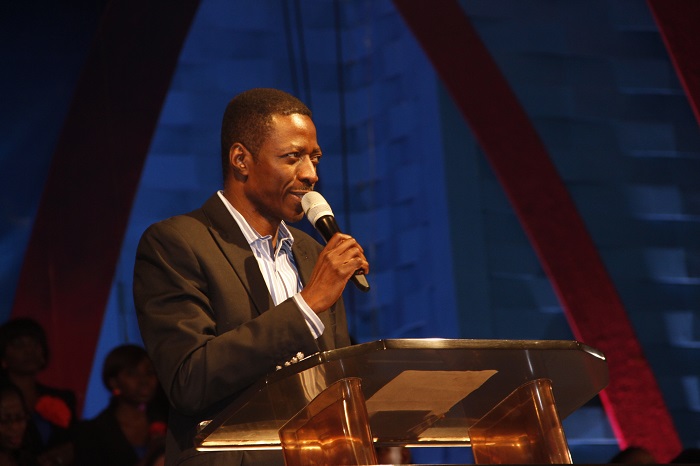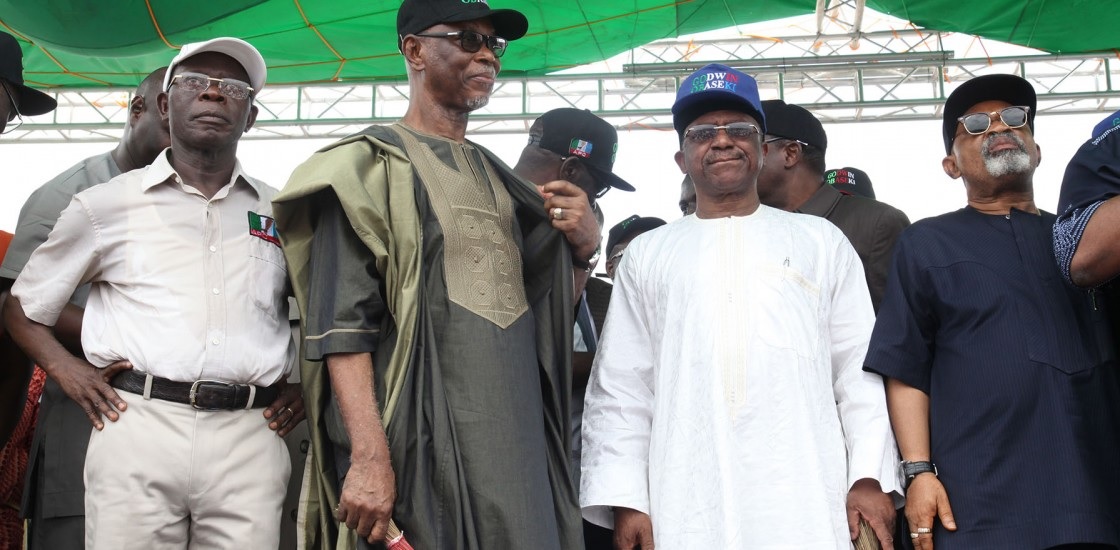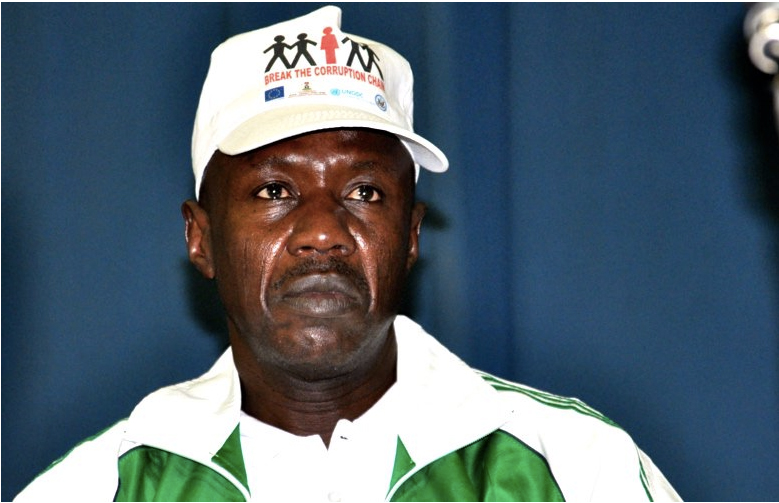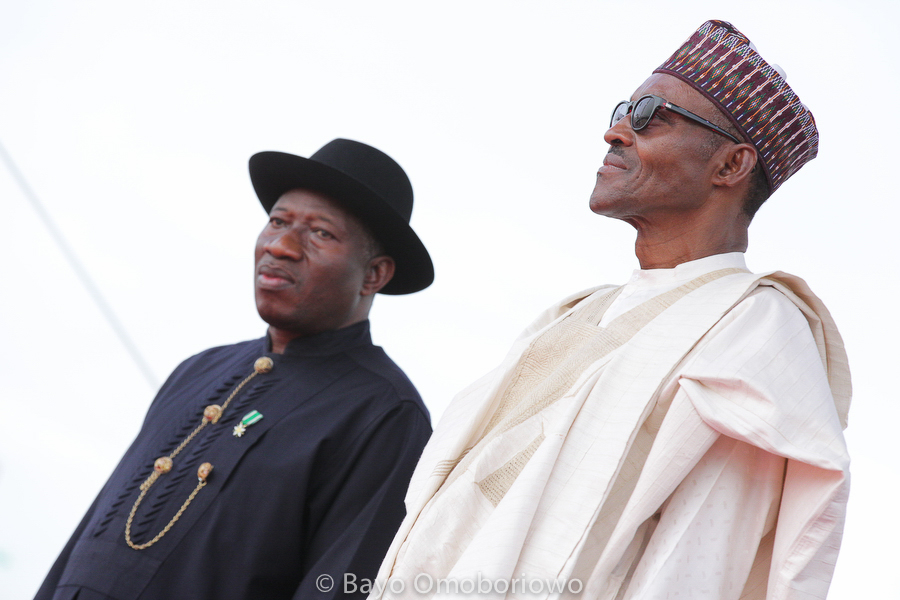Some folks who claimed they were protesting the raid on the homes of a few judges brought parts of Abuja to a standstill this week. A number of the protesters, who said they were lawyers, sealed their mouths and wore their bleeding hearts on their sleeves as they marched across town.
This is not a war on corruption, they said, it’s a war on the Bench.
From the words on their placards, you would think they were avenging angels on a mission to save the city from the barbarians.
They said the show of solidarity was the least they could do for three Supreme Court justices set to face trial for corruption after the DSS raided the homes of seven of them and recovered large sums of money in different currencies.
Advertisement
And to show that they meant business, the protesters called for help from all parts of the world, including the UK, whose former Prime Minister, David Cameron, said Nigeria was fantastically corrupt.
Cameron must be having a good laugh, but I don’t think what the protesters have done is funny. They may have sealed their mouths and blocked their ears, but without blindfolds why was it still so hard for them to see?
If some people think it’s OK for a judge not to spend one kobo of his salary for months – if not years – and still have boxes full of assorted foreign currencies in his house, then we’re in serious trouble.
Advertisement
If they find nothing wrong with senior lawyers bribing justices and forging judgments to be admitted to the inner bar, then we’re in a worse mess than Cameron could have described.
What is the matter with us?
I get the point about due process, and about law and order so eloquently argued by Chidi Odinkalu in his article on the lessons of history. I also share the concern of residual voices among the protesters, urging caution.
But my lot and sympathy are with the victims of the banditry, those at the receiving end of trust so shamelessly betrayed. Did the suspects even think of due process? It seems that to whom much is given, the worst is expected.
Advertisement
Where were the protesters when the National Judicial Council suspended Justice Ayo Salami and later forced him to resign to save the ego and self-interest of a few?
Where were the protesters when a judge gave a perpetual injunction to prevent a politician from investigation or even arrest, notwithstanding the degree of suspicion or the weight of evidence?
Where were they when crooks bigger than camels escaped the needle’s eye of our justice system only for them to be jailed abroad on the same evidence?
Were these protesters in Mars when a judge who sent scores to jail for petty stealing got only a rebuke and forced retirement after taking millions of naira in bribes?
Advertisement
Or will the protesters and their instigators say they’re unaware that judges who no longer trust middlemen to collect and deliver bribes now do it by themselves?
A source told me of a judge who expressed consternation that the Buhari-led APC government is treating them “harshly after all they did for them, including even the party’s epic legal battle to have its name registered.” Another said, “It is the same system that this government is maligning today that we used to fight their cause.”
Advertisement
Shall we continue on the wrong path that grace may increase? From the statements by the NJC, even before the protest, it appears that either the council underestimated the degree of the problem, was too complicit to act, or both.
See how long it took the council to prevail on the accused judges to step down. It is doubtful if it was sheer coincidence that the Abuja protest held on the same day the judges reluctantly stepped down.
Advertisement
It’s appalling that in spite of the disgrace and shame that stare the NJC in the face, it still prefers to play the ostrich, saying it will not treat petitions against judges if they are leaked.
And that’s supposed to give the public comfort at a time of flagging confidence in the NJC, when other jurisdictions are encouraging more open reporting systems?
Advertisement
The protesters can march till the wall of Jericho falls, but the NJC and its leadership have no one but themselves to blame for the mess in the judiciary today. They condoned the rot even though key officials kept names of corrupt judges in their top drawer for months.
Our judiciary was not always like this. Even in one of the most contentious judgments of all time by the Supreme Court on twelve two-thirds of 19 states, the deeply aggrieved losers did not remotely accuse the justices of taking bribe.
The protesters may have been too busy marching on their back foot to notice, but things have been going downhill. We have seen astonishing about-turns by the Supreme Court with judgments that ignore the facts and evidence in the rulings of appellate courts in favour of a fresh set of convenient facts and evidence.
The system is not irredeemable. There are lots of bright, devoted and honourable judges and lawyers who must be appalled by the nonsense going on.
The NJC must reform. Part of that reform should include an immediate end to the rung-ranking system of appointing justices to the Bench and the office of Chief Justice. The present system has been corrupted and cultified; it must be done away with in favour of a more open, transparent and merit-driven system.
In at least three common law jurisdictions, including South Africa, India and Canada, all with fairly robust federal systems too, appointments to the Supreme Court and the appointment of the Chief Justice are largely transparent.
Even though the convention in India favours the most senior judge for appointment as chief justice, for example, it is not binding. Also, at least six justices have been appointed to the Supreme Court directly from the bar.
In South Africa, according to Section 174 (1-3) of the Constitution, the President may appoint a chief justice and the deputy after consultation with the Judicial Service Commission and the leaders of the parties in parliament as long as the candidate is “fit and proper” with legal qualification and some experience. Se fini.
What’s the use of an NJC where members can buy front row seats or where a rotten convention permits a retiring Chief Justice at 70 to go away with a “golden handshake” of nearly N1billion in cash and a brand new house worth at least N500m?
The biggest mistake that the government can make now is to relent. That would be terrible. It must find the courage to follow through this cleansing and trial with diligence and fairness.
Otherwise the backlash would be such that even an army of future protesters may be unable to stem it.
I have been reminded that the executive is the least qualified to take on the Judiciary, because it is just as corrupt, if not worse. That may be true.
But if we manage to straighten out the judiciary, the bastion of our collective hopes, then it just might be a bit easier to ask other transgressors to come to equity.
Ishiekwene is the managing director/editor-in-chief of The Interview and board member of the Global Editor’s Network
Views expressed by contributors are strictly personal and not of TheCable.
Add a comment







